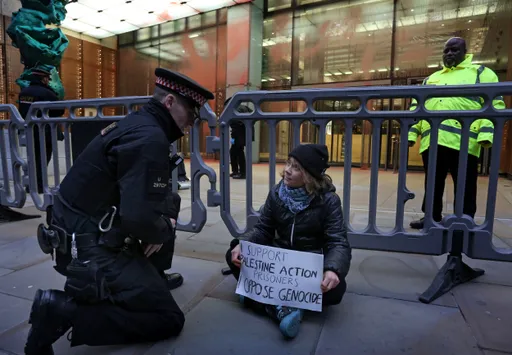Indonesia has banned goods transactions on social media platforms in a new regulation, its trade minister has said, as Jakarta aims to rein in direct sales on major platforms it says are harming millions of small businesses.
Calls have grown in recent months for a regulation governing social media and e-commerce, with offline sellers seeing their livelihoods threatened by the sale of cheaper products on TikTok Shop and other platforms.
"This trade regulation has been in force (since yesterday)," Trade Minister Zulkifli Hasan told a news conference in the capital Jakarta on Wednesday.
He said social commerce platforms would have a week to comply with the new rule.
"Any government would protect local small businesses," he said, saying the regulation was passed to ensure "equality in business competition".
The regulation means social media firms will not be able to conduct direct transactions but only promote products on their platforms.
"Social commerce can place ads like TV, but it mustn't be transactional. (They) can't open shop, can't directly sell," he said, without mentioning TikTok by name.
Laws in the archipelago nation did not cover direct transactions through social media platforms such as TikTok, Facebook or Instagram before the new regulation.
One of the biggest markets for TikTok Shop
The new regulation is yet another setback for TikTok, which has faced intense scrutiny in the United States and other nations in recent months over users' data security and the company's alleged ties to Beijing.
"Other countries are banning, we don't, (we're) regulating," Hasan said.
Indonesia is one of the world's biggest markets for TikTok Shop and was the first to pilot the app's e-commerce arm.
But Indonesia is now the first country in the region to act against the platform's growing popularity in social media commerce.
The ministerial-level regulation - an amendment to a trade regulation issued in 2020 - did not need approval by lawmakers.
Chinese technology giant and TikTok owner ByteDance and TikTok Indonesia did not respond immediately to a request for comment Wednesday.
But a TikTok Indonesia spokesperson told AFP on Monday the ban would harm as many as six million local sellers who market their products on the platform.
Meta - which owns Facebook and Instagram - did not respond to a request for comment.
'Markets are quiet'
How the ban will work exactly remains unclear but experts said it could mean social media firms would have to obtain a separate approval for their e-commerce arms.
"It could be that their license will be rearranged," said Tauhid Ahmad, executive director of the Jakarta-based Institute for Development of Economics and Finance.
Offline sellers at Tanah Abang market in Jakarta applauded the government's decision.
"The government should... dare to innovate given the current situation, where markets are quiet like this," said Stevanie Ahua, a 60-year-old wholesale denim jeans seller.
She said her revenue had dropped by 60 percent in recent months as buyers turned to online shops.
Others like 29-year-old cookie baker Panji Made Agung in Bali said he was disappointed by the ban.
"For sellers like me, TikTok can be used for soft selling. We can become influencers and sellers at the same time," he said.
Indonesia's e-commerce market is dominated by platforms such as Tokopedia, Shopee and Lazada but TikTok Shop gained a significant market share since launching in 2021.
Indonesia, with 125 million users, is TikTok's second-largest global market after the United States, according to company figures.
TikTok's chief executive Shou Zi Chew visited Jakarta in June, pledging to pour billions of dollars into Southeast Asia in the coming years.
























